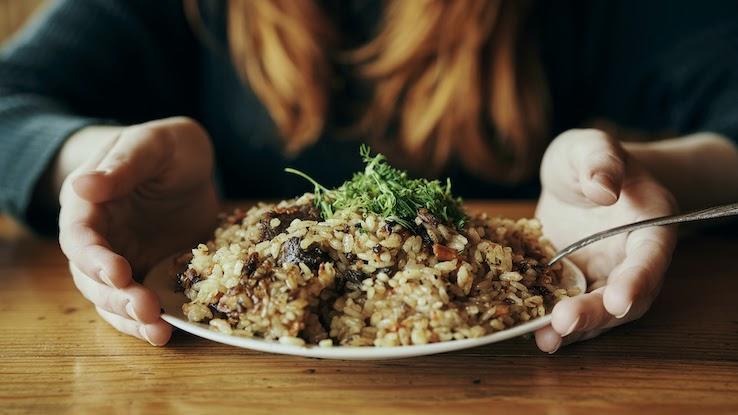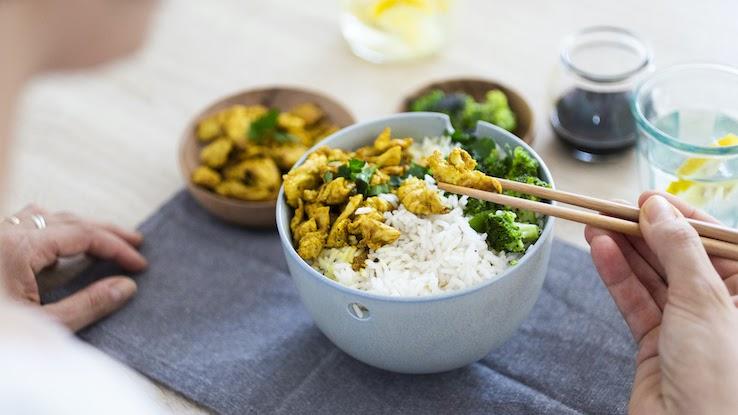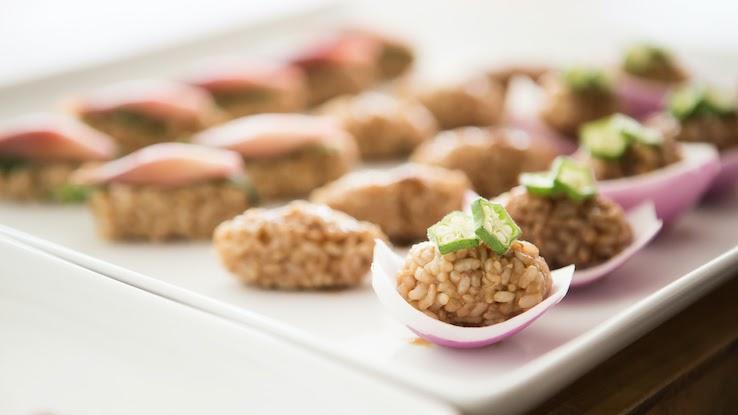It Ain't Easy Being White It Ain't Easy Being Brown

Rice has been a popular ingredient in dishes around the world for centuries. But in recent years, a discussion over the health benefits of white and brown rice has begun. Many people say that white rice has little nutritional value and that brown rice is much healthier. But what makes brown rice so healthy? And is white rice really that unhealthy? To answer these questions, it's essential to understand the differences between white and brown rice — and the benefits they both offer.
Brown rice is a whole grain, which is the healthiest type of grain you can eat. Other whole grains include:
- Millet
- Barley
- Bulgur
- Buckwheat
Whole grains are unrefined, which means that the grains still have their bran and germ. The bran and the germ are the parts of the grain containing the most nutrients. They're what make brown rice so healthy.
What Is White Rice?
White rice is a refined grain. This means the bran and the germ have been removed during the milling process. This prolongs the shelf life of the rice and gives it a softer, less gritty texture. However, without the bran and the germ, white rice does lose some of the nutritional value that brown rice retains. Other examples of refined grains include:
- White flour
- White bread
- Degermed cornflower
Because refined grains lose some nutritional value during the milling process, many of them, including white rice, are enriched with B vitamins and iron when manufacturers process them for sale.
The Nutritional Value of Rice

When comparing the nutritional data for brown and white rice, you may be surprised to see that brown rice doesn't appear that much healthier than white rice. One cup of each type of rice contains about 200 calories, and both are very low in cholesterol and sodium. Both are also low in fat, but white rice has less fat. One cup of white rice contains just 1 gram of fat, while brown rice contains 3 grams of fat.
However, brown rice edges out white rice when it comes to nutrients because of its unrefined state. The following nutrients make brown rice a healthier choice.
Selenium
Brown rice is a valuable source of selenium, a vitamin that can repair DNA, regulate your body's thyroid hormone and boost your immune system's functioning. One cup of brown rice contains 27% of the recommended daily value of selenium, while one cup of white rice contains 17%.
Magnesium
Brown rice is also an excellent source of magnesium, a mineral that's essential for bone health. One cup contains 21% of the recommended daily value, whereas one cup of white rice contains just 5% of the daily value.
Manganese
By far, brown rice is the best source of manganese, which plays a vital role in keeping your body's cells healthy. Just one cup contains 88% of the recommended daily value, while one cup of white rice contains only 37%.
In the race for better nutrition, there's one category where white rice does best brown rice: its B vitamin content. White rice is a convenient source of folate, a B vitamin that we enrich white rice with during the production process. But brown rice has a fullness factor of 2.3 versus white rice's 2.1, which means that brown rice will keep you fuller for a longer period and could potentially help you eat less.
The Health Benefits of Brown Rice

Because brown rice is so full of nutrients, it offers the following benefits:
- Lowers cholesterol
- Helps prevent weight gain
- Helps lower blood pressure
- Protects against heart disease
- Reduces the risk of Type 2 diabetes
- Reduces the risk of childhood asthma
- May prevent the formation of gallstones
- Reduces the risk of developing metabolic syndrome
These are only some of the benefits that brown rice has to offer. For instance, brown rice also contains phytonutrients, which are plant compounds that act as antioxidants and fight free radicals — unstable atoms that can damage cells around your body. Because phytonutrients exist in the bran and germ, white rice doesn't contain them. On the other hand, brown rice doesn't contain B vitamins, specifically folate, which is an essential nutrient — especially for pregnant people. Therefore, a mixture of brown rice with a little bit of white rice, on occasion, is ideal for a nutritional diet.
However, it's helpful if you eat white rice in moderation. Some studies show that white rice can increase the risk of developing Type 2 diabetes. Refined grains can also lead to weight gain, an increase in insulin resistance, and a condition called metabolic syndrome that can make you more likely to develop heart disease.
Brown rice does edge out white rice when it comes to nutrition and health benefits, but white rice isn't as unhealthy as people often claim. It has the same amount of calories, fat, sodium and cholesterol and is an excellent source of B vitamins. If you have five to six servings of rice a week, make sure three to four of those servings are brown rice to get a good balance of nutrients that can protect your health.
Resource Links:
"Brown Rice Versus White Rice: Nutritional Quality, Potential Health Benefits, Development of Food Products, and Preservation Technologies," National Library of Medicine
"Effect of Brown Rice, White Rice, and Brown Rice with Legumes on Blood Glucose and Insulin Responses in Overweight Asian Indians: A Randomized Controlled Trial," U.S. National Library of Medicine, National Institutes of Health
"White Rice, Brown Rice, and Risk of Type 2 Diabetes in US Men and Women," U.S. National Library of Medicine, National Institutes of Health
"Is white rice consumption a risk for metabolic and cardiovascular outcomes? A systematic review and meta-analysis," U.S. National Library of Medicine, National Institutes of Health
"Substituting brown rice for white rice to lower diabetes risk: a focus-group study in Chinese adults," National Library of Medicine
Source: https://www.symptomfind.com/nutrition-supplements/brown-rice-white-rice-better?utm_content=params%3Ao%3D740013%26ad%3DdirN%26qo%3DserpIndex&ueid=7f97a990-b408-4acb-ace6-8a1983aa3b19
0 Response to "It Ain't Easy Being White It Ain't Easy Being Brown"
Post a Comment